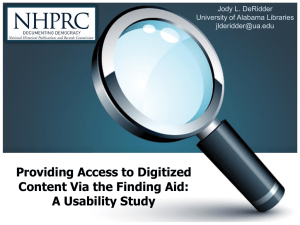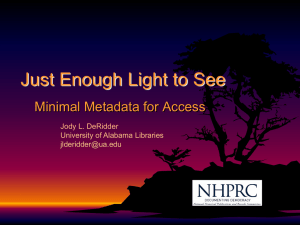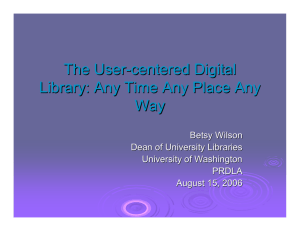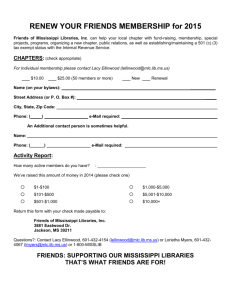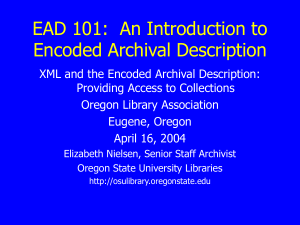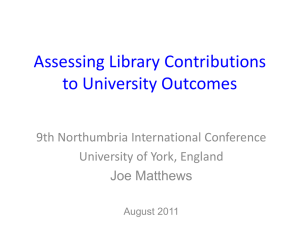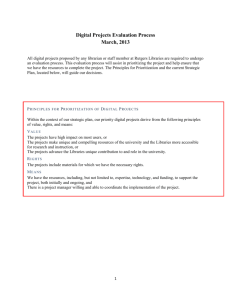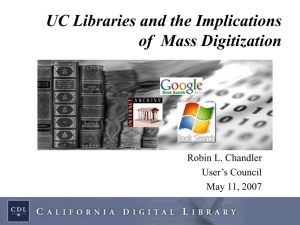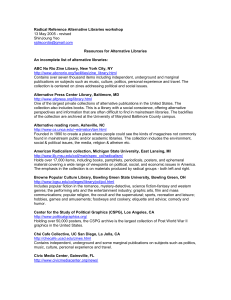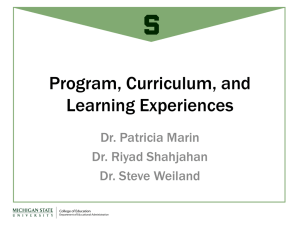Cheap, Quick, and Pretty: Mass Digitization of
advertisement
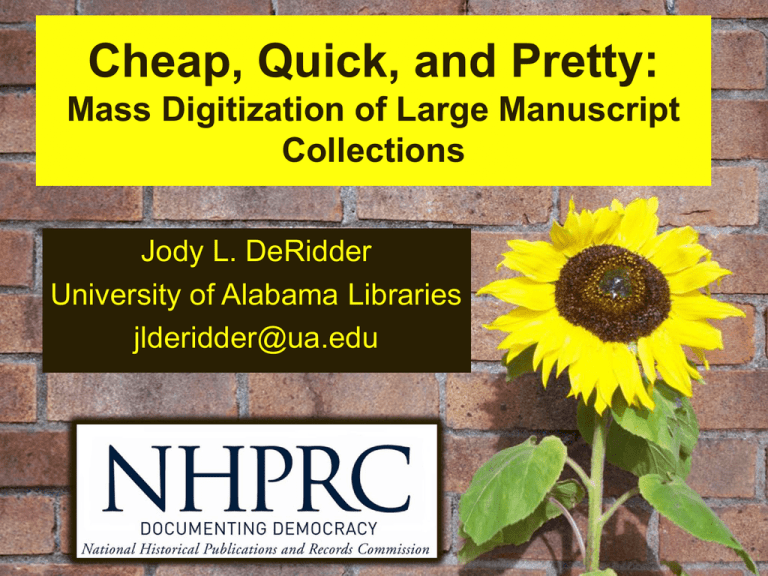
Cheap, Quick, and Pretty: Mass Digitization of Large Manuscript Collections Jody L. DeRidder University of Alabama Libraries jlderidder@ua.edu Outline • How difficult is it? • What does it look like? • How long does it take? • What does it cost? • How effective is it? • What’s missing? How difficult is it? Each file name includes: And sequence: 1, 2, 3 … What does it look like? (item) What does it look like? (EAD) What does it look like? (item outside Acumen) How long does it take? Old method: 8.25 min. / scan New method: 4.34 min. / scan Processing: reduced. QC: reduced. Metadata time: none. 47% LESS TIME! What does it cost? Old method: $2.47 / scan New method: $0.80 /scan Processing: reduced. QC: reduced. Metadata costs: none. 68% CHEAPER!! How effective is it? • Experienced researchers prefer it! • Those new to digital collections found it easier! 42% less time 27% fewer clicks 12% more success • Foreign students found the terminology difficult. We still need… Improved usability of EAD interface: • Terminology • Search in page • Navigation links Then: Establish learnability Summary • Easy: put info in file names; run scripts • Looks: pretty darn good! • Time: 4.34 min. / page • Cost: 79.5 cents / page • Effectiveness: great for scholars; surprisingly good for novices • Need: improved usability of EAD interface For More Information: Upcoming American Archivist article?? • Jody L. DeRidder, “Leveraging EAD for Low-Cost Access to Digitized Collections at the University of Alabama Libraries,” Journal of Library Innovation, 2:1 (2011), http://www.libraryinnovation.org/article/view/69 • University of Alabama Libraries, “Septimus D. Cabaniss Papers Digitization Project.” Project Site: http://www.lib.ua.edu/libraries/hoole/cabaniss Wiki: http://www.lib.ua.edu/wiki/digcoll/index.php/Cabaniss Display: http://acumen.lib.ua.edu/u0003_0000252 • University of Alabama Libraries, “Acumen Digital Library Software.” http://sourceforge.net/projects/acumendls/ References Experienced researchers prefer the finding aid interface: • Tim West, Kirill Fesenko, and Laura Clark Brown, “Extending the Reach of Southern Sources: Proceeding to Large-Scale Digitization of Manuscript Collections,” Final Grant Report for the Andrew W. Mellon Foundation, Southern Historical Collection, University Library, University of North Carolina at Chapel Hill, June 2009, http://www.lib.unc.edu/mss/archivalmassdigitization/download/extending_the_reach.pdf • Cory Nimer and J. Gordon Daines III, “What Do You Mean It Doesn’t Make Sense? Redesigning Finding Aids from the User’s Perspective,” Journal of Archival Organization 6, no. 4 (2008), http://dx.doi.org/10.1080/15332740802533214 Novice users experience a learning curve: • Wendy Scheir, “First Entry: Report on a Qualitative Exploratory Study of Novice User Experience with Online Finding Aids,” Journal of Archival Organization 3, no. 4 (2006), http://dx.doi.org/10.1300/J201v03n04_04 • Joyce Celeste Chapman, “Observing Users: An Empirical Analysis of User Interaction with Online Finding Aids,” Journal of Archival Organization 8, no. 1 (2010) http://dx.doi.org/10.1080/15332748.2010.484361
